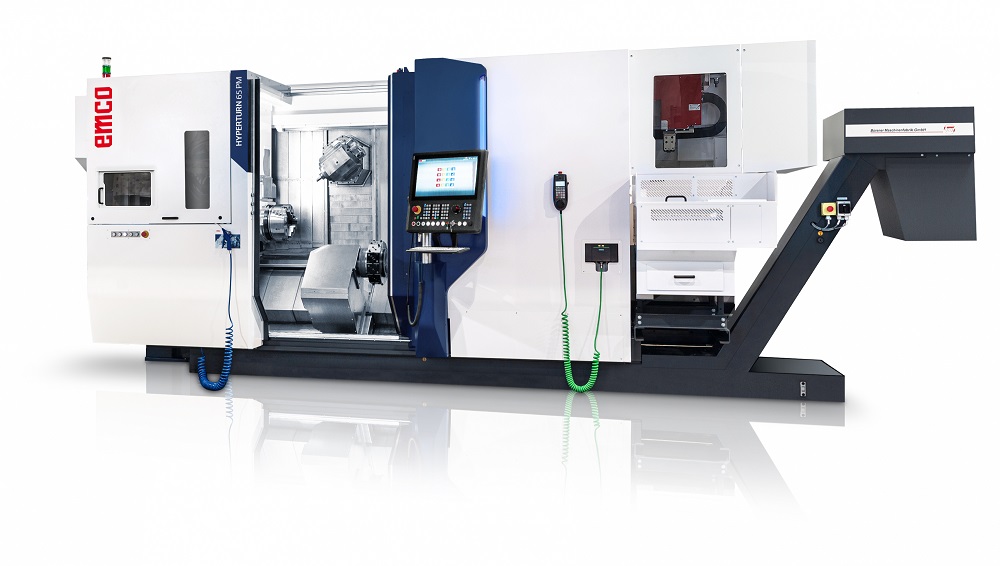GF Casting Solutions relies on the Hyperturn 65 Powermill G2 and the EmcoTurn E65 CNC turning centre. Thomas Klade, team leader of contract manufacturing, reports on the effectiveness of the two Emco machines at this Altenmarkt-based specialist in magnesium and aluminium die casting solutions for the international automotive industry.
The two CNC turning machines from Emco manufacture the spare parts required for the die casting tools
“From the first technical discussions to the sales process and delivery, our collaboration with Emco went extremely well,” says Klade.“Besides, I’ve been familiar with Emco machines since my training days, and we know that we’re buying machines that deliver what they promise and perform very well in terms of precision.”
He continues: “Both machines are perfectly tailored to our requirements and run excellently. The support from Emco is also really good.”
The EmcoTurn E65 turning centre is used primarily to produce screw cores. With this machine, GF Casting Solutions has been able to reduce its machining times significantly. The
machine features a 65 mm spindle bore, counter spindle, radial turret with 12 driven tools, as well as a Yaxis with 80 mm stroke. Parts are collected in a pot and unloaded via the partial conveyor belt, which also eliminates the need to open the door.One of the biggest advantages is definitely the time saved.
“For example, if the system receives the order to produce 15 pieces, these are produced fully automatically within a certain period and engraved according to requirements,” says Klade.“They’re then ejected to a conveyor belt. No further manual intervention is required, and we’ve been able to reduce production time by two-thirds.”More information www.emco-world.com



















